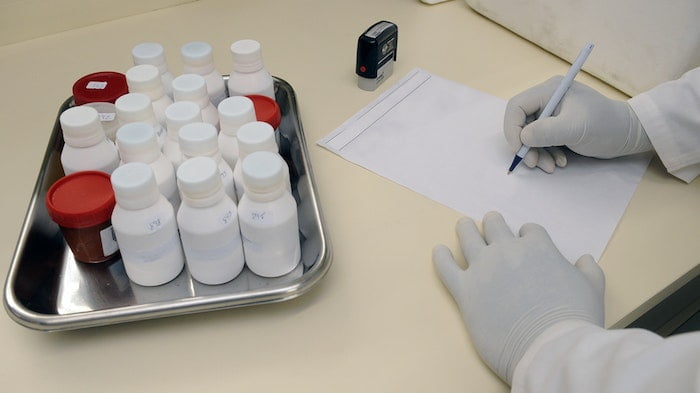- Home
- Alcohol Rehab – Residential/Inpatient Treatment for Alcoholism
- Residential Alcohol Rehab
Residential Alcohol Rehab
Alcohol rehab programmes aim to help clients stop their excessive alcohol use by tackling the physical and psychological dependence associated with alcohol addiction.
There is a range of biological, psychological and social treatments that can help clients achieve abstinence from alcohol use and gain greater control of their behaviour, leaving them less vulnerable to previously learned automatic psychological processes. (7,8)
Alcohol rehab programmes usually contain the following elements
- An assessment of the patient’s treatment needs.
- Detoxification (Medical detox).
- Group and individual therapies.
- Educational and personal development workshops.
- Relapse prevention.
- Devising an aftercare programme.
Alcohol Rehab uses an Abstinence-based Approach

Alcohol rehab treatment centres advocate an abstinence approach to treating alcoholism which is based on the disease model of addiction, which is in agreement with the beliefs of Alcoholics Anonymous.
Because of the nature of addiction, it is unrealistic to simply expect patients to reduce their alcohol intake to a lower level. Alcoholism is a serious mental health condition which changes patients’ internal physiology and brain chemistry, and any alcohol consumption in the future would invariably lead to a relapse which could have devastating consequences. (7,8,15)
What does Residential Treatment for Alcoholism Involve?
Also referred to as inpatient treatment, residential alcohol treatment involves clients spending a period of 1-2 months at rehabilitation premises where they receive biological, psychological and social interventions to help treat their alcohol addiction (alcohol use disorder).
Patients signed up for inpatient rehab programmes will remain living in the residential setting for the duration of their treatment, having all their meals there and sleeping there.
Patients have the option of staying in a room by themselves or in a multiple occupancy room with other patients having treatment.
This is in contrast to outpatient alcohol treatment where clients can gain access to detox treatment and psychosocial therapies out in their local community and remain living in their own homes. (4)
Who is Suitable for Residential Rehab for Alcoholism?
Below, we list who may be suitable for residential alcohol rehab:
- Patients diagnosed with moderate to severe alcohol use disorder
- Patients who need to give up alcohol for health, social and legal reasons.
- People who live in poor living environments and/or who live in unsupportive domestic situations with a high degree of discord.
- People diagnosed with alcohol use disorder that has previously relapsed after receiving treatment on outpatient programmes.
- People who are isolated and alone with little social support.
- Individuals who have been diagnosed with a mild to a moderate mental health condition as well as their alcohol addiction. (15,18)
What are the Benefits of Residential Rehab for Alcoholism?

Overall, research does suggest that there are higher success rates for clients who receive residential rehab for alcohol addiction compared with clients who follow outpatient programmes.
Although it must be added that there are intense outpatient programmes available that have been proven to be successful depending on their content and intensity. (8,11)
However, there are many advantages of booking in for residential treatment programmes for alcoholism, these include:
- Clients will be able to receive around-the-clock monitoring and pastoral care should they suffer any medical emergencies whilst going through the early stages of detox and/or experience any moments of panic and distress.
- Residential rehab allows clients to fully focus on their recovery without the extra hassle of other stressors increasing their stress and anxiety levels and impacting their mental health and potential for recovery.
- Having inpatient treatment means clients will not be exposed to toxic and negative influences from their usual environment which can either tempt them directly back into alcohol consumption or trigger negative feelings and thoughts which may encourage them to drink alcohol again. (9)
- Rehab centres use specialist knowledge and proven, effective therapies to treat patients with alcohol addiction and all their staff are experienced, fully qualified and insured.
Understanding the Terms of the Inpatient Treatment Contract

Each rehab centre will have its own set of specific rules and terms that inpatients need to abide by during the course of their stay.
This may include:
- No consumption of alcohol, no alcohol in their possession
- Do not bring anything inappropriate to rehab such as offensive clothing, cigarettes, pornographic material
- No electronic devices.
- Fully engage with therapy.
- Respect other clients’ and the rehab centre’s boundaries, e.g not entering other people’s rooms and respecting the time boundaries laid down.
- Treat all clients and staff with respect and show tolerance to all individual differences apparent.
- No advice giving to others or criticism of others.
The Admissions Process

These are the procedures set down by rehab centres which govern how they accept and enter patients into their inpatient treatment programmes for alcohol addiction.
The below procedures ensure consistency in the way they treat all potential clients and set down a clear way of working which aligns with established codes of practices for addiction treatment.
1. Screening process
Before accepting clients into their treatment programmes, rehab centres will check to confirm with interested parties if they meet the criteria for admission.
This is known as the screening process and predominantly includes:
- Confirming the patient is aged 18 years old or older.
- Ensuring that any clients seeking treatment are both physically and emotionally able to participate in an intense programme of therapies and detox treatment.
- Being satisfied that the potential client is displaying the physical and behavioural signs and symptoms of an alcohol use disorder. The rehab centre may ask for evidence from a GP or psychiatrist to confirm this.
2. Assessment stage
One of the senior practitioners will conduct a comprehensive assessment of your treatment needs very soon after you enter rehab.
This is an important exercise as it will help the treatment team to get an overview of your situation and an understanding of the nature of your alcohol use.
The assessment also helps to gather information about the social and emotional background of your alcohol use which along with your early family life are important considerations for developing an individually tailored programme.
The following aspects are deemed important by treatment staff to help them build a full profile of each patient:
- The patient’s level of intoxication.
- The current state of their physical health, after undergoing a medical examination and reviewing the patient’s medical history.
- The medication they are currently taking.
- The state of the patient’s mental health.
- The patient’s motivation and level of enthusiasm for recovery.
- Their potential for relapse.
- A review of the social factors that may negatively impact their treatment progress, including legal issues, housing, family problems, financial struggles and employment concerns. (4,12)
Treatments for Alcohol Addiction

There are several elements to an alcohol rehab programme, all of which help the patient stop their alcohol use and move forward with their lives.
Pharmacological Treatment (Detox)
It is necessary to check the level of each patient’s physical dependence on alcohol and to assess the severity of their withdrawal symptoms, as this is necessary to help devise the patient’s detox treatment schedule.
Alcohol dependence occurs when a person’s alcohol consumption escalates to a point where they have increased their tolerance towards alcohol and begin to experience withdrawal symptoms when they go 1-2 days without drinking alcohol.
It only takes a week of heavy drinking to develop a physical dependence on alcohol and the more alcohol a person drinks the quicker they will build up a tolerance to alcohol which results in them needing to drink more alcohol to become inebriated. (15,19)
Dependent drinkers will find that they will need to continue drinking alcohol just to avoid experiencing withdrawal symptoms, even if they have made a conscious decision to give up alcohol.
Alcohol Withdrawal Syndrome
Patients diagnosed with alcohol use disorder will experience alcohol withdrawal symptoms several hours after their last alcoholic drink, the main symptoms are likely to be:
- Autonomic hyperactivity (e.g., sweating or pulse rate greater than 100 bpm). 2.
- The presence of hand tremors.
- Disturbed sleep/insomnia.
- Nausea or vomiting.
- Hallucinations/illusions, whether visual, auditory or experiencing strange sensations on their skin
- Psychomotor agitation.
- Irritability and Anxiety.
- Generalized tonic-clone seizures. (3)
Clinical Tools used by Rehab Centres
All patients in rehab who undergo detox treatment for alcohol withdrawal will vary in terms of how intense their withdrawal symptoms are and not all patients will experience the exact same combination of symptoms.
To ensure each client’s treatment programme is accurate medical staff carrying out the detox treatment use the Clinical Institute Withdrawal Assessment (CIWA) questionnaire to help them establish how severe their symptoms are.
The CIWA asks patients to report on a scale ranging between 0-7 depending on how severe their withdrawal symptoms are, with 7 representing extremely severe. (6)
The CIWA allows the medical team to prescribe patients exactly the right dose of medication to help reduce their withdrawal symptoms and no more, which will help to minimise the time spent in detox.
Symptom Triggered Regime
Most rehab centres tend to use this symptom-triggered regime approach to treating alcohol withdrawal as the dose of benzodiazepine that is prescribed is sufficient to reduce the severity of the symptoms reported by the patient.
This takes into account the level of each patient’s discomfort, as a patient reporting a higher level of pain would receive a higher dose of the benzodiazepine. (6.19)
Psychological Interventions

Once patients have completed their detox programme, which usually lasts 7-10 days they can commence their programme of psychological therapies to help them overcome their psychological dependence on alcohol.
These therapies will help them change their negative thought patterns and help them deal with the uncomfortable feelings that usually cause them to drink alcohol. (9)
The key psychological interventions used to treat alcohol addiction include:
1. Attending AA meetings
Alcoholics Anonymous was the first substance addiction-related support group and now all other peer groups for addictive disorders follow the AA model as part of their approach to treatment.
AA is a network of peer support groups throughout the world that are committed to supporting any individual who has been drinking alcohol to excess and experiencing negative consequences and is unable to stop. (1)
AA is based on the principle of fellowship and mutual support and that no one should attempt to recover from alcoholism on their own but can achieve sobriety by becoming part of a supportive community that meets regularly to support each other.
AA is a free service and anonymity is guaranteed as no records are ever taken and no personal information is ever asked for. Rehab centres fully support and encourage all patients to regularly attend AA meetings which are usually held out in the community and not on the rehab centre’s premises.
2. The 12-step programme
Most rehab centres have modified the 12 steps of the AA into a form of therapy that clients can work through in groups, individual therapy sessions or in informal meetings with their peers or their sponsors. (1)
Each step takes time to work through and all patients must contemplate each step carefully and do the necessary work to complete the step before moving on to the next one, otherwise their recovery may be hampered.
3. Cognitive Behavioural Therapy (CBT)
CBT is a form of therapy that seeks to analyse and adjust a person’s thinking patterns, core beliefs and triggers for alcohol use.
Working with a CBT therapist helps patients understand the nature of their own thoughts and understand how this affects their emotional state, their behaviour and their alcohol use.
CBT enables patients to recognise and change irrational and unhelpful thinking styles, identify the environmental and emotional triggers for their drinking and helps them learn more productive coping strategies when faced with tough life challenges.
CBT also helps to boost patients’ self-esteem and allows them to see other people’s perspectives and allows them to explore other options they have available.
For example, a patient may believe that drinking alcohol is the only way they can become comfortable and confident in social situations.
The therapist will encourage the patient to explore other ways of developing the confidence to feel comfortable and assured in social occasions. (2)
4. Dialectical Behavioural Therapy (DBT)
Many patients diagnosed with alcohol use disorder experience a lot of negative feelings and emotions which can overwhelm them at times and act as a trigger for their alcohol consumption. (9)
Engaging in DBT sessions will help patients learn important cognitive skills so that they can handle and sit with strong emotions and change their usual automatic behavioural responses to stress and anxiety.
During the sessions, they will develop techniques such as mindfulness and emotional regulation skills under the guidance of a therapist which they can implement when they feel overwhelmed.
This is instead of drinking alcohol which has been their usual habitual response to experiencing stress and difficult feelings. (5)
5. Motivational interviewing (MI)
MI is an important therapy tool used by psychological therapists in rehab centres.
Alcohol addiction is such a difficult mental health condition to overcome mainly because it involves a lot of hard work for patients as they work through challenging feelings and come to terms with their situation.
Many patients can become demotivated and start to disengage with treatment because of this, but MI sessions can be invaluable in helping clients identify the psychological barriers they are facing that have led to them feeling uncertain about whether they carry on with their treatment.
MI counsellors seek to build strong relationships with clients and show a lot of empathy towards them in their sessions and this helps them pinpoint the reasons for their drop in motivation and enables them to find the self-belief to carry on with their treatment plan. (14)
Relapse Prevention
A key component of alcohol rehab involves helping patients maintain their recovery once they have left.
To help them achieve this they will attend relapse prevention workshops so that they can gain the reflective skills to identify the situations that may cause them to relapse in the future.
These are referred to as high-risk situations and may include:
- Being in the company of a particular group of people (e.g a sports team) or just one influential person.
- Attending certain events strongly associated with alcohol use such as music gigs, sports events or family functions.
- Being at a location associated strongly with alcohol use.
- When experiencing strong emotions or physical states, including anger, hunger and loneliness.
Once these situations have been identified the rehab team can work with each patient to help them develop the necessary strategies, psychological skills and resilience to prevent themselves from drinking alcohol in these situations. (17)
Gaining Access to Residential Rehab Treatment
Spending 1-2 months in residential alcohol rehab is very expensive but it certainly boosts a patient’s chances of recovery.
If any potential patient is fortunate enough to have their own private funds or able to borrow money from friends and family members then they can begin the admissions process within days as there is no bureaucracy or administrative red tape to be delayed by.
People seeking alcohol rehab who go down the funding route will find the application process long and drawn out and accompanied by a great sense of uncertainty, and it may be months before they gain access to treatment.
This may be too long to wait for some people, however, as during this time they may have lost motivation for recovery due to the disruption to their enthusiasm and momentum, and some may have even relapsed back into drinking alcohol again. (15)
Rehab Cost/payment

There can be a significant difference in the cost of treatment throughout the UK with some rehab centres charging £1,000 per week and others £10,000 per week.
To be sure of receiving treatment from a respectable, trustworthy provider with a good track record patients can expect to pay around £500 per day for residential treatment, which works out to approximately £15,000 for a one-month stay.
As well as paying the total fee in full there are other options open to clients, including:
1. Personal Payment Plan
Some rehab centres can arrange a payment plan, paid in instalments but this depends on the content of your recommended treatment programmes and the finance department of the rehab centre. But most of the time a payment plan that suits all parties can be agreed upon.
2. Medical insurance
There are health insurance policies available that can cover the cost of addiction treatment offered by major health insurance companies such as BUPA.
The terms and conditions of each policy available will vary, but most of them will cover the basic aspects of treatment such as detox, psychological therapies, medical appointments and medication.
The policies are unlikely to cover holistic therapies, recreational activities and more expensive forms of therapy that require the employment of highly skilled practitioners such as trauma therapists.
Get Help Today

For more advice and information, please contact Rehab Recovery today at 0800 088 66 86.
References
(1) Alcoholics Anonymous (2021) What is AA? Available @What is AA? | Alcoholics Anonymous – Great Britain (alcoholics-anonymous.org.uk)
(2) Beck, A Wright, F, Newman, C., Liese, B. (1993) Cognitive therapy of substance use. The Guilford Press. New York.
(3) Black, D., Grant, J. (2013) DSM5 Guidebook: The Essential Companion to Diagnostic and Statistical Manual of Mental Disorders, 5th Edition. APP. London.
(4) Coombs, R.H. (ed) (2004) Handbook of Addictive Disorders: A practical guide to diagnosis and treatment. John Wiley & sons. New Jersey.
(5) Dimeff, L., Linehan, M. (2008) Dialectical Behaviour Therapy for Substance Abusers. Addiction Science and Clinical Practice. June 2008.
(6) Ewin- NHS (2022) Alcohol withdrawal assessment scoring guidelines available@ Alcohol Withdrawal Assessment Scoring Guidelines (CIWA – Ar) (ewin.nhs.uk)
(7) Ghodse, H. (2002) Drugs and Addictive Behaviour: A guide to treatment Cambridge University Press.
(8) Herie, M. & Skinner, W. (2014) The Fundamentals of Addiction: A Practical Guide for Counsellors. CAMH. Canada.
(9) Khantzian, E., Albanese, M. (2008) Understanding Addiction as Self-Medication: Finding hope behind the pain. Rowman & Littlefield. Maryland.
(10) Lewis, J, Dana, R., Blevins, G. (2002) Substance abuse counselling. Brooks Cole, London.
(11) Mack, A.H., Harrington, A.L. & Frances, R.J. (2010) Clinical Manual for Treatment of Alcoholism and Addictions. APP. London.
(12) Mee-Lee, D. (2013) The ASAM Criteria: Treatment Criteria for Addictive, Substance-Related and Co-occurring Conditions. American Society of Addiction Medicine.
(13) McNiff, S. (2004) Art Heals: How creativity cures the soul. Shambhala. London.
(14) Miller, W. & Rollnick, S. (1991) Motivational Interviewing: Preparing to Change Addictive Behaviour. Guilford Press. New York
(15) Moss, A, Dyer, K (2010) The Psychology of Addictive Behaviour. Palgrave McMillan. Substance-Related
(16) National Institute for Clinical Care Excellence (2022) Management of Acute Alcohol withdrawal available@Alcohol Care Bundle A4 guide (nice.org.uk)
(17) Parks, G., Anderson, B., Marlatt, G.A. (2004) Relapse Prevention Therapy in Heather, N. & Stockwell, T. The Essential Handbook of Treatment and Prevention of Alcohol Problems. John Wiley and Sons. Chichester.
(18) Rassool, G.H. (2011) Understanding Addictive Behaviours. Palgrave MacMillan. New York.
(19) Sachdeva, A. et al (2015) Alcohol Withdrawal Syndrome: Benzodiazepines and Beyond. Journal of Clinical Diagnostic Research. 9 (9). available@Alcohol Withdrawal Syndrome: Benzodiazepines and Beyond – PMC (nih.gov)
(20) Stern, TA; Gross, AF; Stern, TW; Nejad, SH; Maldonado, JR (2010). . Primary Care Companion to the Journal of Clinical Psychiatry. 12 (3). available@Current Approaches to the Recognition and Treatment of Alcohol Withdrawal and Delirium Tremens: “Old Wine in New Bottles” or “New Wine in Old Bottles” – PMC (nih.gov)


